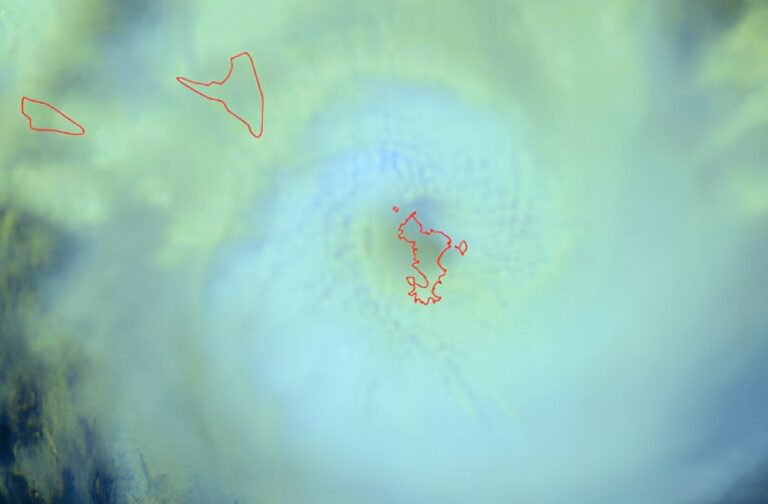France: French President Emmanuel Macron was met with strong protests from locals during his visit to the cyclone hit Mayotte, in the Indian Ocean. The President arrived, five days after Cyclone Chido devastated the islands, leaving thousands without access to water and electricity.
During his visit, Macron encountered boos and calls to resign from locals who are requesting more aid. One woman at Mamoudzou hospital reportedly said that, “Nobody feels safe here. People are battling over water.” Macron responded, saying that, “I’m not the cyclone. I’m not responsible,” as tensions flared over the slow rate of relief efforts.
Cyclone Chido, the worst storm to hit the archipelago in 90 years, tore through the islands with winds reaching over 225 km/h (140 mph), devastating homes, infrastructure, and vital services. Over 30 people have been affirmed dead, with the toll expected to rise significantly as many remain missing. Macron promised to rebuild the damaged infrastructure and said France would observe a national day of mourning.
In response to the ongoing crisis, Macron expanded his stay, ensuring a continued presence as efforts to deliver essential food and water supplies ramp up. Macron assured locals that additional support would be sent soon, including four tonnes of emergency food and health supplies.

Despite the protests, some tenants expressed gratitude for his visit, urging him to stay longer. Macron’s visit comes with the declaration of a state of exceptional natural disaster, a measure desired at fast-tracking aid and bypassing administrative obstacles.
Mayotte, France’s poorest territory, has long faced social and economic challenges, including high illegal immigration rates and inadequate public services. The cyclone has hit these residents hardest, including vulnerable migrants from nearby Comoros. The government has promised continued aid and support as the rescue efforts continue.
The storm, which also wreaked havoc in Mozambique and Malawi, serves as a stark reminder of the ongoing humanitarian challenges in the region.



